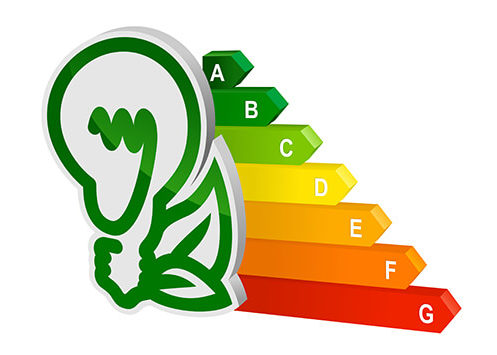Nothing beats the comfort of enjoying a cozy evening with family and friends inside your nice, toasty home. However, according to the U.S Department of Energy, Americans spend a big chunk of their total electricity bills on heating their homes, especially during the winter. Do some research and learn how to determine the energy efficiency of your heater.
Even in places with unpredictable weather where homeowners have both air conditioners and heaters in their homes, the latter is still more expensive to operate. If you don’t want to end up paying a hefty electricity bill at the end of the month, it is very important you go for an energy-efficient heater.
There are various ways you can determine the energy efficiency of your heater and decide whether any adjustments are needed. Here are just a few.
Your Heater’s AFUE Rating
The best way to determine whether your heater is energy-efficient or not is by checking the AFUE rating. AFUE, which stands for “annual fuel utilization efficiency,” is a metric that measures how efficiently your heater can convert fuel into energy. This number is usually expressed as a percentage. To learn more about how to determine the energy efficiency of your heater, check out this great resource from the US Energy Department.
When it comes to AFUE ratings, the higher the percentage, the more efficient the heater is. For instance, if your heater has an AFUE rating of 97%, it means that 97% of the fuel is converted into energy while the remaining 3% is lost. For older heaters, the AFUE rating is usually around 56% which means that 44% of the energy is wasted.
Generally, if your heater is indicating a low AFUE rating, it means that it is experiencing a major problem where it is using energy but not converting it to a suitable output. The best thing about going for a heater with a higher AFUE rating is that it won’t matter the duct or piping systems you have in place; the heat will still find a way to the rooms.
You’ll normally find the AFUE rating of your heater in the manual or on the sticker attached to your unit. However, if you can’t figure out the AFUE rating of your heater, you can get the serial number and search it on the manufacturer’s website. If this doesn’t work, ask a professional HVAC service provider for further assistance.
Your Energy Bill
Conservation of energy starts with you being conscious of your electricity consumption. One of the ways that you can determine whether your heater is energy-efficient is by looking into your monthly energy bill. Unlike other utilities in your home, the energy bill is never at a fixed rate. Fluctuation in energy bills is fairly common depending on the season change, the living situation, and any rise in energy costs.
However, if you notice a sudden and unexplained spike in your monthly energy bill, it indicates an underlying problem with your heater. Comparing your energy bills from different months will help you understand whether your heater is losing its efficiency.
It’s important to note that there are also other factors that might be contributing to the fluctuating energy bill in your home, including poor insulation, change in living habits, or having more people in your home than usual. Considering all these factors will help you make a more informed decision about the heating situation in your home.
Your Heater’s Age
Even though it is wise to purchase a heater with a higher AFUE rating, this isn’t always where the story ends. As a homeowner, you need to understand that it’s not possible to get the same performance from your heater throughout its lifespan. Generally, the lifespan of a heater ranges between 15 and 20 years.
However, since the heater is installed in a dusty cellar, if it’s not properly maintained, this lifespan can decrease a lot. In fact, it is reported that your heater loses 5% off of its AFUE rating every year. The best way to keep your heater performing at peak efficiency is by having your local heating company do a maintenance visit from time to time.
But, even though regular maintenance will keep your heater in good condition, it won’t necessarily increase its lifespan. Fortunately, the market is filled with both affordable and energy-efficient heaters. Therefore, if you notice that your heater is aging and has started to consume more energy than usual, it might be time for an upgrade.
How to Improve the Efficiency of Your Heater
As a homeowner, it’s very important to understand that your heater’s ductwork exchanges the cold and hot air in your home. If your home feels warm in the winter, you might end up forgetting about the ductwork. However, if the ductwork is covered in holes and cracks, it means that a significant percentage of the heater generated by the heater will be lost from these leaky ducts. For this reason, it’s important that you seal all the ductwork. By doing this, there won’t be any air leaks, and your heater will become more energy-efficient.
In most homes, a thermostat helps to improve the heater’s energy efficiency. If you’d like to reduce your monthly energy bill, ensure that you turn the thermostat back at least 10 degrees before you sleep or during the day when you’re not home. It might sound like such a simple practice, but it will help reduce your home’s utility bill.
Understandably, if you have a manual thermostat, it can be difficult to remember to adjust your thermostat every time you leave the house. This is why you should consider replacing your manual thermostat with a programmable one. These thermostats allow you to create a heating schedule for your home ahead of time and save on energy bills even more.
All HVAC systems rely on air filters to keep dust and debris away from the unit and your home. Therefore, since these air filters accumulate dust and debris with every cycle, they can get clogged with time. This will make them inefficient at capturing dust and other pollutants. Additionally, clogged air filters usually force heaters to work harder in order to keep your home warm.
This is why most HVAC companies advise that you change the air filters in your heater every two to three months to prevent your heating system from slowing down. Also, if there is anyone in your household that has asthma, allergies, or respiratory conditions, you might want to change these air filters more regularly to improve the indoor air quality. Changing your air filters as recommended will go a long way toward making your heater more energy efficient and reducing your monthly energy bills.
Are you looking for a fast, effective, and reliable heating service? Contact us today at Tarpy Plumbing, Heating & Air, and let us provide you with the best indoor air quality, furnace inspection, and heating repair services that you can get in the San Diego area. We also offer a full range of plumbing services from annual system inspections to emergency repairs and more. Call us today for more information or to schedule a service.


 SPECIALISTS
SPECIALISTS

